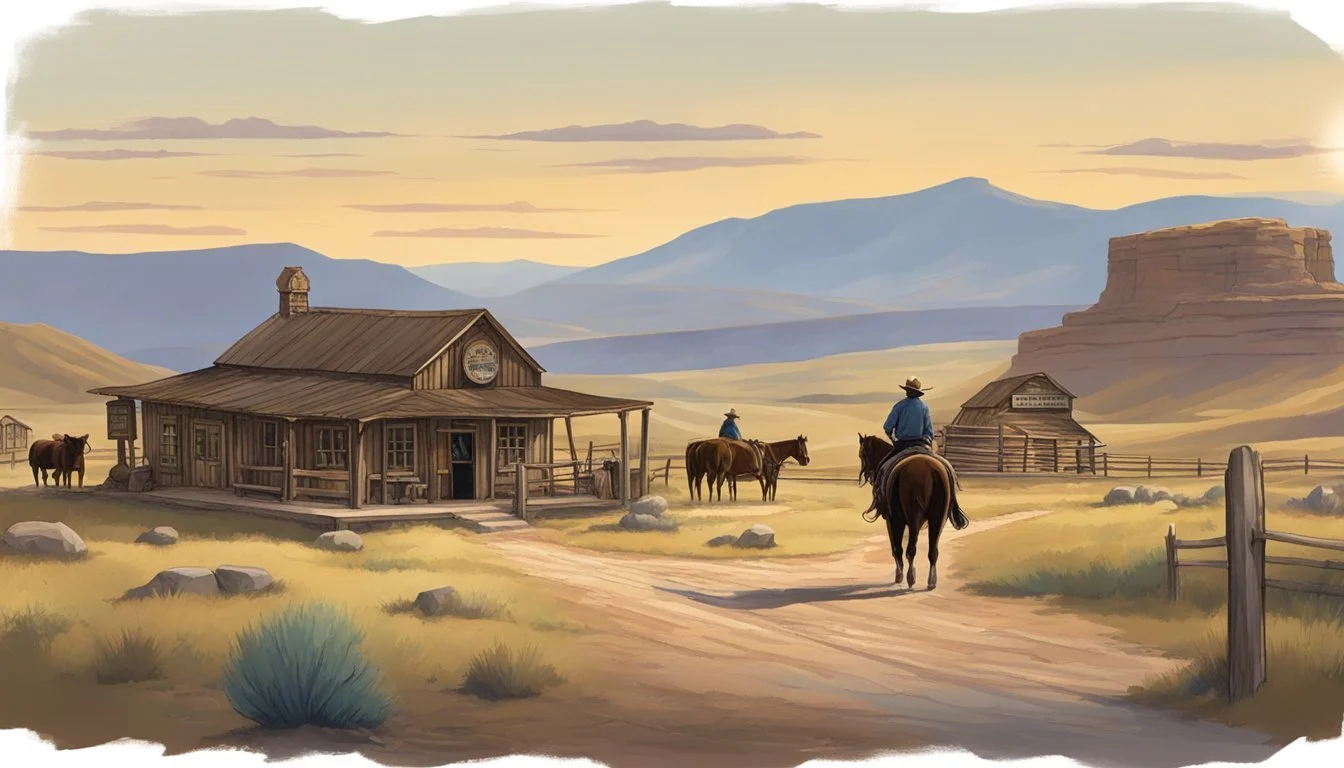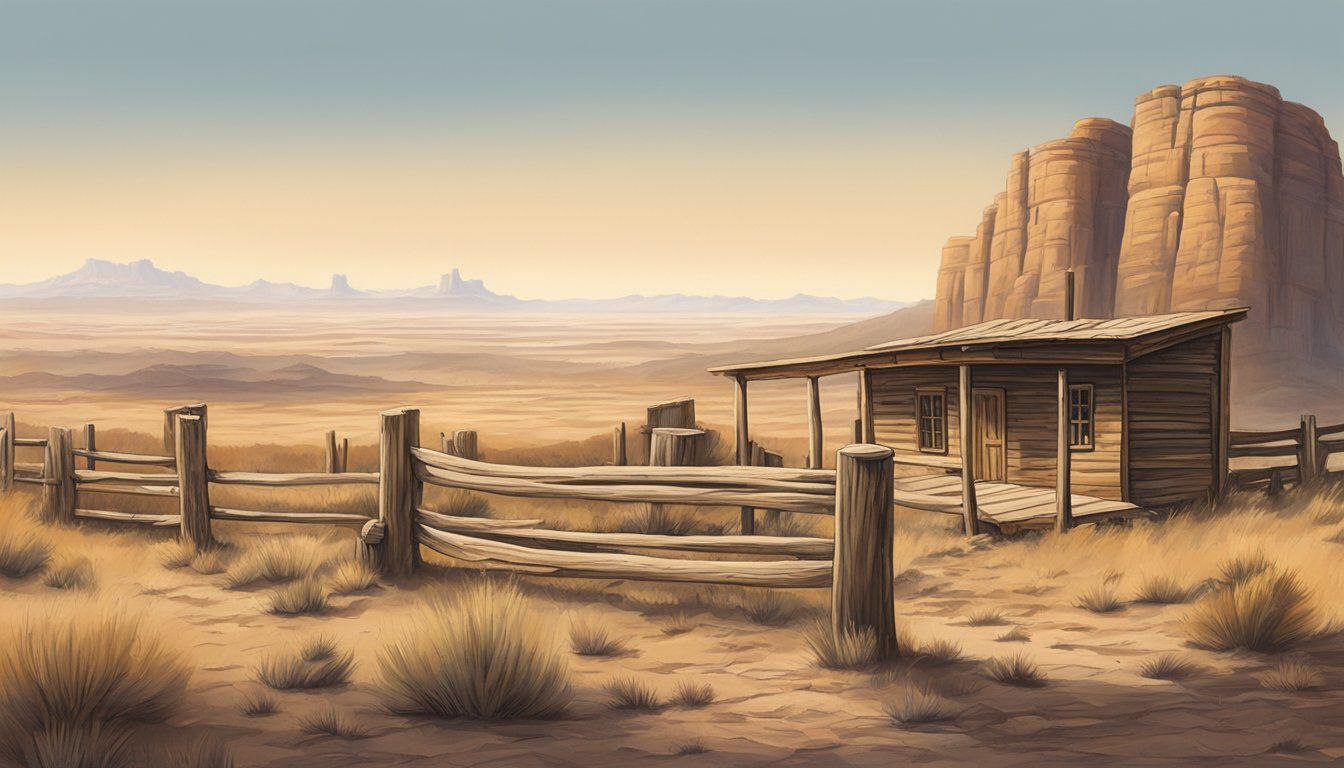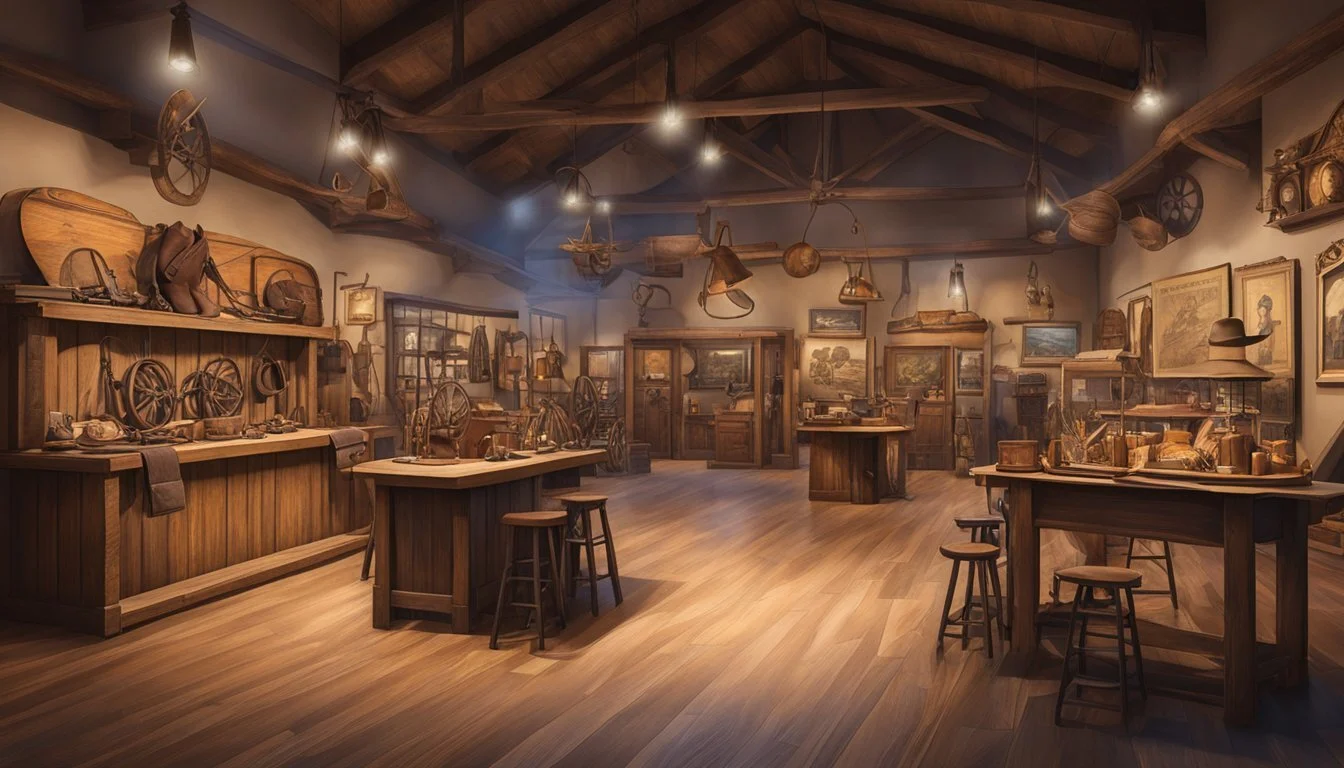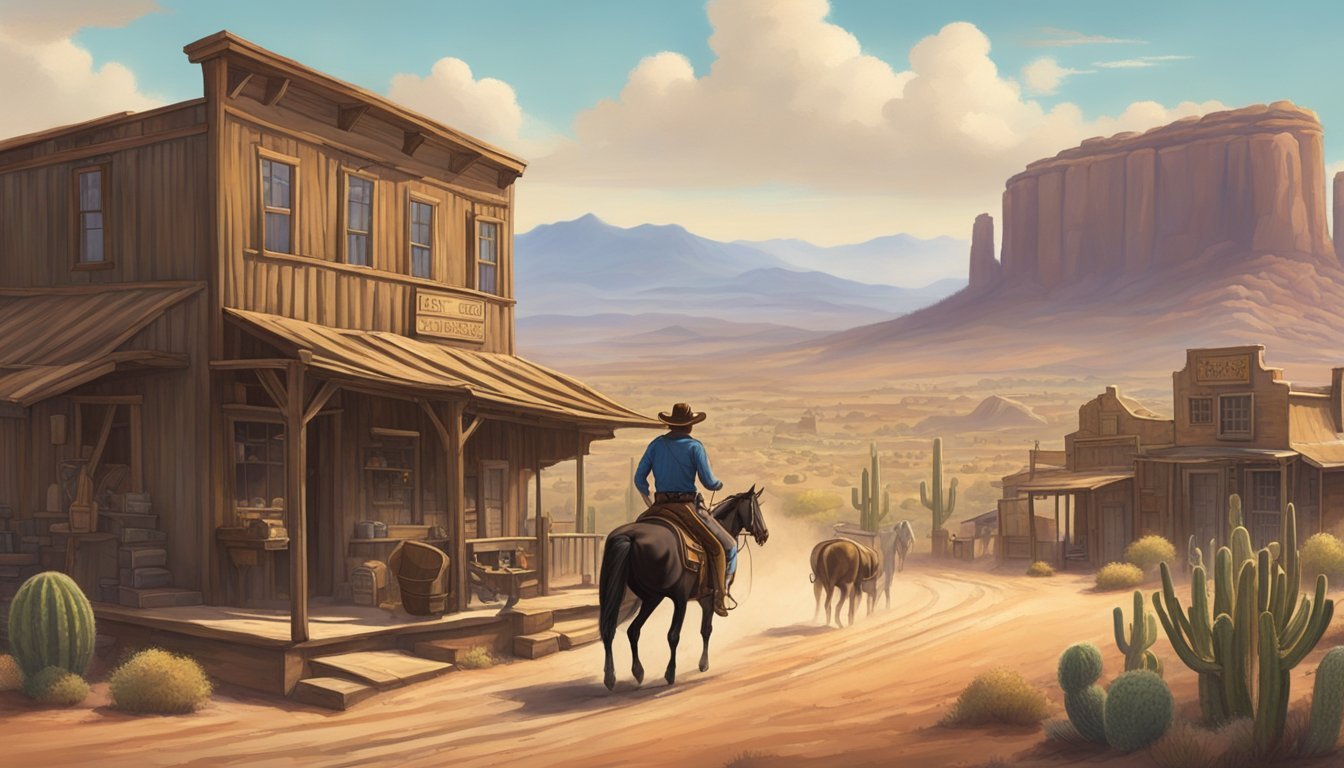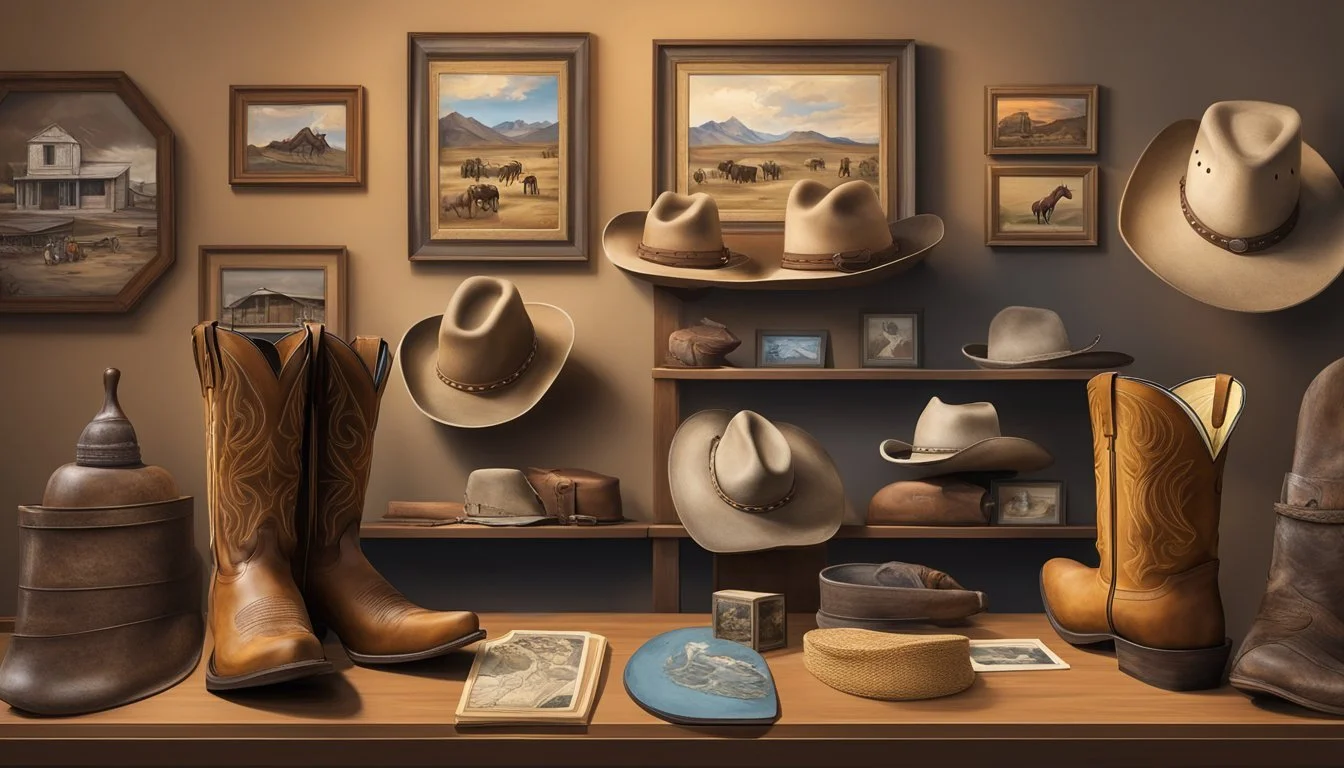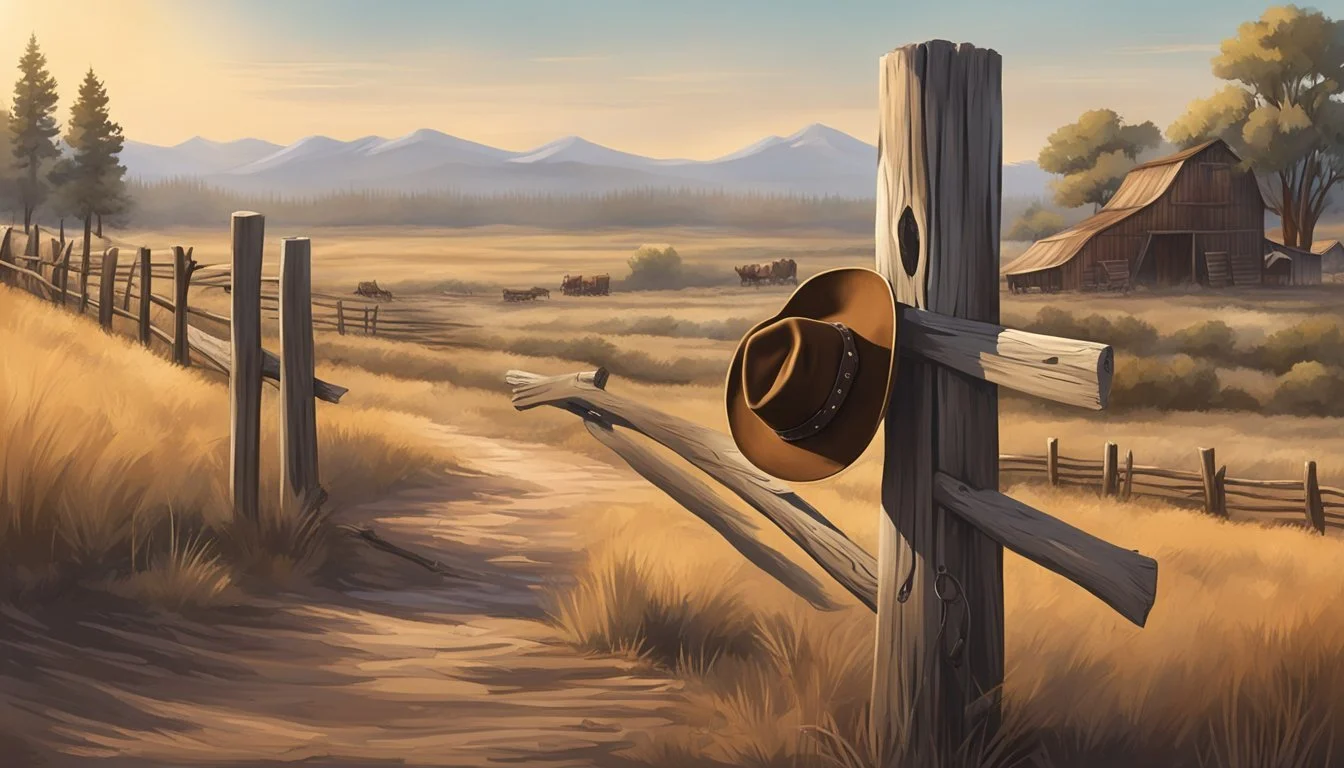The Texas Cowboy's Guide to the Best Western Heritage Museums
Insights into Frontier History
The allure of the American West, with its rich history and cultural significance, has captivated hearts for generations. At the heart of this fascination is the Texas cowboy, an enduring symbol of rugged individualism and frontier spirit. To truly grasp the legacy of these Western icons, an exploration of the best Western heritage museums is essential. These institutions serve as invaluable resources, preserving the artifacts, stories, and essence of the cowboy culture and broader Western heritage.
Texas plays a pivotal role in this narrative, offering a selection of museums that provide visitors with an immersive glance into the past. These museums not only celebrate the traditional image of the cowboy immortalized in popular culture but also acknowledge the diverse influences that have shaped the region, including the vaqueros, the original horsemen and cattle herders. The convergence of Spanish and American frontier life crafted a unique Texan identity, encapsulated within the walls of these cultural treasure troves.
Museums dedicated to Western heritage in Texas go beyond static displays; they are dynamic spaces where the past converges with the present. Engaging exhibits recount the historic cattle trails, while galleries pay homage to the artistry that encapsulates Western life. Visitors can expect a multifaceted experience, delving into the nuanced history of the 39 Tribal Nations in Oklahoma, the evolving narratives of the American West, and the undeniable influence of cowboy culture on national identity. These museums stand as testaments to the enduring legacy and ongoing evolution of the West.
The Beginnings of Western Heritage
In the tapestry of American history, the colorful threads of Western heritage are woven deeply. The early cowboy culture, the Spanish influence of vaqueros, and iconic cattle drives, all culminate in the establishment of legendary trails that have marked the West.
Early Cowboy Culture and Origins
The archetype of the cowboy emerged out of necessity. Ranching in Texas required skilled individuals who could manage and herd the expansive cattle ranches. These cowboys were not just herders; they were the backbone of the ranching industry, contributing significantly to the economy of the American West.
The Influence of Vaqueros on Texas Cowboy Life
It is essential to recognize the contribution of vaqueros, the Spanish term for cowboys, to Texas cowboy culture. These skilled horsemen were deft in herding techniques and horsemanship, which became foundational practices for Texas cowboys. Vaqueros were pivotal, introducing the traditions that would define Western heritage.
The Role of Cattle Drives in the American West
Cattle drives were critical economic endeavours moving vast herds of cattle from Texas ranches to markets in the north. The drives were not merely about moving animals; they symbolized the rugged spirit of the West and underpinned much of the region's development.
Pioneering the Chisholm and Western Trails
Two major routes stand out in the history of cattle drives – the Chisholm Trail and the Western Trail. These conduits facilitated the movement of cattle to northern markets. The Chisholm Trail, established in the post-Civil War era, and the Western Trail, blazed by cattlemen like John T. Lytle, underscored the importance of these pathways to the Western economy and lore.
Museums and Attractions Showcasing Cowboy Legacy
Exploring Texas's cowboy museums and attractions provides an authentic glimpse into the robust legacy and culture of the American West. These sites preserve the history and celebrate the traditions that have shaped Texas's identity.
Prominent Texas Western Heritage Museums
Texas's reverence for cowboy heritage is embodied in its dedicated museums. The Fort Worth Stockyards Museum sits at the heart of cowboy country, offering an immersive experience into the cowboy trails of yesteryear. In Cuero, the Chisholm Trail Heritage Museum showcases interpretive exhibits that capture the essence of cowboy culture. Similarly, visitors to the San Antonio Museum of Art can appreciate cross-cultural collections that speak volumes of Texas's involvement in Western art and history.
Western Art and Exhibitions
Art is a powerful medium that conveys the spirit of the cowboy era, and Texas museums are rich in such exhibitions. The Dallas Cowboys Museum conveys team spirit through an extensive collection of memorabilia, linking sports history with Texas culture. Meanwhile, curated Western art pieces displayed throughout state museums offer unique perspectives into the cowboy lifestyle, celebrating their influence on local and global art scenes.
Historic Ranches and Open Range Preservation
The preservation of historic ranches and open ranges is vital for maintaining the authenticity of Texas's cowboy legacy. These attractions allow visitors to step back in time and experience the expansive landscapes once navigated by cowboys. Ranches not only serve as museum-like spaces, providing interactive and educational experiences, but they also continue the living traditions of ranching and open range management that have been pivotal to Texas's development.
By visiting these sites, individuals can engage directly with the intricate tapestry of stories and artifacts that define the enduring allure of the Texas cowboy.
Events Celebrating Cowboy Traditions
Texas proudly preserves its western heritage through a variety of events that showcase the enduring cowboy culture. These range from exhilarating annual rodeos to esteemed halls of fame commemorations, and vibrant community gatherings that exemplify the state's cowboy traditions.
Annual Rodeos and Cattle Roundup Festivals
The Texas Rodeo Circuit comes alive each year with events that echo the cowboy's way of life. Visitors can witness the thrilling action at the Houston Livestock Show and Rodeo, the world's largest, offering a unique blend of live entertainment and livestock competitions. Smaller yet equally anticipated are the annual cattle roundup festivals in towns like Bandera, where traditional skills are on full display.
Houston Livestock Show and Rodeo: March.
Bandera Cattle Roundup Festival: Dates vary.
Cowboy Hall of Fame and Special Events
The Texas Cowboy Hall of Fame in Fort Worth honors those who made a significant contribution to the western lifestyle. It hosts special events throughout the year, including induction ceremonies and educational programs, to educate and inspire both residents and visitors about the deep-seated cowboy culture.
Induction Ceremony: Annual event, date varies.
Educational Programs: Offered year-round.
Cultural Events: Opera Houses and Saturday Gatherings
Cultural events in Texas often reflect the cowboy spirit in more ways than one. Historic opera houses, like the Fort Worth Opera, integrate this rich history into their performances. Moreover, typical Saturday gatherings in various Texan towns often feature country music, dancing, and storytelling, reinforcing the connection between cowboy culture and community.
Fort Worth Opera Performances: Seasonal schedules.
Saturday Gatherings: Weekly events, town squares statewide.
Modern Western Heritage and Education
Exploring the evolution of cowboy culture, one finds a rich tapestry of modern contributions and educational initiatives that preserve and enhance the understanding of Western heritage. Museums today play a crucial role in both celebrating the past achievements of cowboys and cowgirls and educating the public on their enduring cultural significance.
Contemporary Cowboy and Cowgirl Contributions
Cowboys and cowgirls have evolved from the rugged individuals of yore to present-day stewards of Western culture. Their contributions include not just cattle handling and horsemanship but also the arts, music, and literature that express the essence of the cowboy ethos. Museums exhibit this ongoing cultural narrative, featuring collections that portray contemporary cowboy life alongside time-honored traditions.
Education and Outreach Programs
Western heritage museums are active in education and outreach, aiming to connect a diverse audience to the cowboy legacy. Programs typically include:
Guided Tours: Docent-led journeys through exhibits, informing visitors about cowboy history and modern-day practices.
Workshops: Interactive sessions that may cover topics such as leather tooling, boot crafting, or ranching techniques.
School Programs: Curriculum-based offerings that bring Western heritage into the classroom with engaging educational materials.
Subscribe to Western Heritage E-newsletter
Keeping abreast of cowboy culture is made easy with museum e-newsletters. They serve as a direct line to:
Upcoming Events: Be informed on rodeos, exhibitions, and cultural festivals.
Educational Content: Receive articles, stories, and interviews that delve into cowboy and cowgirl life.
Membership Information: Learn how to support and participate in museum initiatives.
Subscribers to these e-newsletters gain regular insight into the significance of Western heritage and its preservation for future generations.
Visitor's Guide to the Western Heritage Experience
Texas offers a rich tapestry of cowboy culture and history, beckoning visitors with an array of museums and authentic Western experiences suitable for the whole family. The state's dedication to preserving its heritage provides a window into the cowboy lifestyle, inviting adventure in a way that is both safe and exhilarating.
Family-Friendly Attractions and Adventures
Texas boasts an assortment of attractions that cater to all ages. The Western Heritage Classic in Abilene is a noteworthy event that encapsulates the cowboy spirit with ranch activities, bronc riding, and cow milking competitions. Events like these give families a hands-on, educational experience that is as entertaining as it is informative.
Dixie Dude Ranch: A historic gem located in Bandera, this ranch offers horseback riding and other ranch activities in a family-friendly environment, making it an excellent choice for those wanting to immerse themselves in cowboy culture.
Where to Experience the Western Lifestyle
Visitors looking to deeply connect with Texas's cowboy roots will find no shortage of destinations. The Fort Worth Stockyards presents an unmissable, culturally rich environment with attractions like live cattle drives and rodeo shows that exemplify the city's Western legacy.
Palo Duro Canyon State Park: Often referred to as the "Grand Canyon of Texas," it provides outdoor enthusiasts with the chance to explore the same lands once travelled by cowboys, complete with horseback riding and trails for hiking.
Travel Tips: Staying Safe and Close Attractions
When planning a Western heritage tour, safety is paramount, especially in the expansive outdoor settings common in Texas.
Weather Awareness: Always check the forecast and be prepared for Texas weather, which can change rapidly.
Stay Hydrated: The Texan heat demands visitors to carry water and stay hydrated.
Nearby Assistance: Make note of park rangers and information centers, especially at large attractions such as Palo Duro Canyon.
Proximity to Major Cities: Many of the state's Western heritage sites are within a reasonable distance of major urban centers, making them an accessible option for day trips or longer stays. Consider mapping out attractions in relation to your accommodations to maximize your visit.
Significant Locations in Texas and Beyond
Texas and its neighboring regions are rich with sites that honor the enduring legacy of cowboy culture. These locations offer a tangible link to the past and stand as monuments to the cowboy's indelible mark on American history.
Fort Worth: A Cowboy Mecca
Fort Worth, often referred to as the "Cowboy Capital" of Texas, boasts the famous Stockyards National Historic District. This area preserves the vibrant history of cattle drives and offers a plethora of museums that showcase the storied past of the Lone Star State's cowboys. The Fort Worth Stockyards Museum provides education on the city's role in the cattle industry.
The King Ranch and the Legend of the Longhorn
King Ranch, located in South Texas, is a cornerstone of cowboy heritage. Known as the birthplace of American ranching, the sprawling estate preserves the tradition of the longhorn cattle and is pivotal in the narrative of the Texas cowboy. It features a museum that recounts the history of ranching and King Ranch's influence on the industry.
Western Heritage in Oklahoma City, San Antonio, and Bandera
Outside of Texas, Oklahoma City houses the National Cowboy & Western Heritage Museum, a significant institution with extensive exhibits on cowboy and Native American culture. In San Antonio, the former home of vaqueros, visitors can find the Briscoe Western Art Museum. Meanwhile, Bandera, self-proclaimed "Cowboy Capital of the World," retains a strong cowboy essence with ranches and rodeos celebrating cowboy traditions.
Preservation and Impact on Modern Economy
Texas's rich cowboy heritage continues to influence the state's cultural landscapes and contributes significantly to its economy through tourism and the evolution of ranching practices.
Conservation of Historical Cowboy Landscapes
Texas has conserved numerous historical landscapes once traversed by cowboys and cattle drives. These preserved sites now serve as heritage museums and points of interest for tourists and history enthusiasts alike. For instance, visitors can witness such conserved areas at the Chisholm Trail Heritage Museum, set in a renovated architectural beauty that was once part of these historic trails.
Impact of Cowboy Legacy on Texan Economy
The enduring cowboy legacy shapes Texas's economy through both direct and indirect means. Festivals, rodeos, and historical reenactments at places like the stockyards become a substantial draw for visitors, bolstering local businesses. Furthermore, cowboy culture has been pivotal in branding Texan products and crafts that resonate with the allure of the Old West, significantly boosting sales and exposure.
The Evolution of Ranching from the 20th Century to Today
Ranching has seen a transformation since the 20th century, adapting to modern methods while keeping the cowboy spirit alive. Technology and sustainable practices have been integrated into traditional ranching, ensuring economic viability. These modern ranches not only contribute to Texas's food supply chain but also preserve the cowboy culture, providing a glimpse into the past with a focus on future sustainability.
Future of Cowboy Traditions and Heritage
The preservation and evolution of cowboy traditions are vital for maintaining the heritage in the face of a modernizing world. Western heritage museums play a crucial role in this endeavor, offering a bridge from the past to the future.
Goodnight-Loving: A Trail into Tomorrow
The Goodnight-Loving Trail remains a historical journey that continues to capture the imagination of contemporary society, representing resilience and the frontier spirit. Museums highlight the trail's pivotal moments, from herding challenges to the creation of cattle-driving routes, projecting how these stories will inspire future generations to keep the legacy alive.
Keeping the Spirit Alive: Next-Generation Cowboys
New generations of cowboys and cowgirls are taking up the mantel, blending historical practices with modern sensibilities. They commit to:
Horsemanship: Advancing riding skills while preserving historical techniques.
Rodeo: Participating in events that showcase their skills and celebrate traditions.
Attire: Wearing the iconic cowboy hat as a symbol of their enduring identity.
By infusing the lifestyle with new energy, they ensure that the spirit of the cowboy endures.
The Intersection of Cowboy Culture and the 21st Century
In the 21st century, cowboy culture interfaces with technological advancements and contemporary conversations. Museums take on the role of not just preserving artifacts but also storytelling platforms, combining immersive tech with authentic artifacts to help visitors understand the cowboy life in the past and its transformation. They demonstrate how cowboy culture has become a part of:
Fashion: Evolving styles that still pay homage to the Western aesthetic.
Media: Films and digital content that carry the ethos of the cowboy into modern narratives.
Education: Using interactive displays and digital archives to teach cowboy history and its impact on American society.
Through these innovative methods, museums keep cowboy traditions relevant in a constantly evolving world.
Conclusion
Texas remains a pivotal cornerstone in celebrating cowboy culture and Western heritage. Museums across the state diligently preserve this history, offering rich, diverse narratives of the cowboy's influence. Visitors are encouraged to explore the various institutions that honor the Western legacy, each providing a unique window into the past.
The Chisholm Trail Heritage Museum resonates with a commitment to authenticity, housing interpretive exhibits that showcase a pivotal era of cowboy history.
Black Cowboy Museum serves as a testament to the often overlooked African American cowboys who played a significant role in shaping Texan and cowboy heritage.
Top museums like the ones mentioned offer a tapestry of stories, artifacts, and experiences that define Texas's cultural panorama.
Visitors should expect a blend of educational richness and entertainment as they step through the doors of these museums. The institutions operate with a confidence stemming from their role as custodians of the cowboy legacy, ensuring cultural significance is neither exaggerated nor understated. Learning about the state's heritage instills a deeper appreciation for the enduring spirit that is synonymous with Texas.

